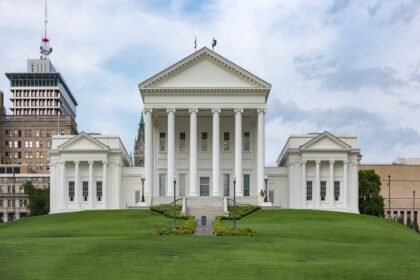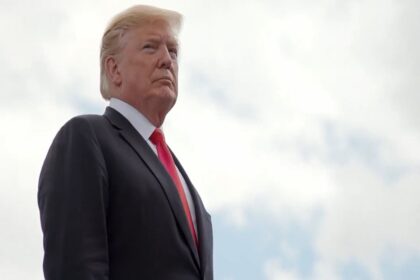The future of TikTok in the United States is uncertain, and recent developments have added a new twist to the ongoing debate. President-elect Donald Trump has requested the U.S. Supreme Court delay the implementation of a law that would ban the popular Chinese-owned app. This decision, which could reshape the digital landscape, hinges on both national security concerns and the political strategies of the incoming administration.
Background: The TikTok Ban Law
TikTok, the short-video app owned by China’s ByteDance, has faced increasing scrutiny from U.S. lawmakers over national security risks. The concern is that the Chinese government could access U.S. user data through the app, potentially compromising sensitive information. In response, Congress passed the Protecting Americans from Foreign Adversary Controlled Applications Act, which was signed into law by President Joe Biden in April 2024. This law mandates that TikTok must either sell its U.S. operations or face a complete ban by January 19, 2025.
However, with Donald Trump preparing to take office on January 20, 2025, a new development has emerged. Trump has requested that the Supreme Court delay the ban’s enforcement while it reviews TikTok’s legal challenges. This request raises crucial questions about executive power, legal jurisdiction, and the future of U.S.-China relations in the tech sector.
Trump’s Request for Delay
In a formal letter to the U.S. Supreme Court, Trump’s lawyer, D. John Sauer, stated that the incoming president’s administration should have the chance to pursue a political resolution to the TikTok situation. The letter highlights Trump’s self-identified expertise in dealmaking and his electoral mandate, positioning him as the ideal figure to negotiate an agreement that could address both national security concerns and TikTok’s operations in the U.S.
Sauer wrote that the incoming administration should be allowed time to work on a potential solution, which would include negotiating with ByteDance and other relevant parties. He suggested that the Court delay the January 19 divestment deadline, thus giving Trump’s team the opportunity to “negotiate a resolution” to the issue (as reported by Politico).
TikTok’s Legal Position: First Amendment Concerns
TikTok’s legal team has consistently argued that a ban would infringe upon the First Amendment rights of its users. The company asserts that the law would stifle free speech, particularly as the platform is used by millions of Americans for entertainment, education, and business. Furthermore, TikTok has pointed out that it has already taken steps to address national security concerns, including moving U.S. user data to Oracle’s cloud infrastructure.
Legal and Political Challenges: Can the Court Delay the Law?
The crux of the legal argument lies in whether the Supreme Court can delay the law’s enforcement at the request of a future president. Legal experts warn that Trump’s request might exceed the Court’s mandate. Alan Rozenshtein, a former Department of Justice official, expressed concern that the Court does not have the authority to pause a law passed by Congress simply because the new president requests it. His views were echoed in an interview with Politico.
Rozenshtein noted that the Supreme Court typically only considers issues of constitutionality, not the political expediency of delaying a law. He added that the Court is unlikely to intervene in a law that has already been enacted by Congress unless there are serious constitutional violations.
The Trump-TikTok Connection: Shifting Positions
President Trump’s position on TikTok has evolved since his time in office. In 2020, he sought to ban TikTok, citing national security concerns. At that time, Trump backed a deal that would have resulted in the sale of TikTok’s U.S. operations to American companies like Oracle and Walmart. However, that deal ultimately fell through.
Since then, Trump’s views appear to have softened. In December 2024, he met with TikTok CEO Shou Zi Chew and expressed a favorable view of the platform, even admitting to having a “warm spot” for it. This shift in sentiment might explain his desire to find a political resolution that would allow TikTok to continue operating in the U.S.
What’s at Stake for Oracle and the U.S. Tech Industry?
The looming TikTok ban also raises concerns within the broader tech industry, particularly for companies like Oracle, which has partnered with TikTok to store U.S. user data. Oracle has warned that banning TikTok could significantly impact its revenue, as the company provides critical cloud services for the app’s U.S. operations. In its annual report, Oracle noted that if the ban were enforced and the company was unable to provide services to TikTok, its financial performance could be severely affected (as noted in Oracle’s filing earlier this year).
Additionally, Oracle’s involvement in the TikTok data storage deal highlights the growing importance of cloud infrastructure in the U.S.-China tech rivalry. As both countries seek to exert control over digital ecosystems, the outcome of the TikTok case could have far-reaching implications for other international technology firms.
The Supreme Court’s Role and What Comes Next
As the legal battle intensifies, the U.S. Supreme Court is set to hear TikTok’s arguments on January 10, 2025. The Court could decide to delay the law’s enforcement, but this is far from certain. If the Court rules against TikTok, the company will have only days to find a buyer for its U.S. operations or face the possibility of shutting down its U.S. operations.
The next few weeks will be critical for TikTok, as its legal team works to demonstrate the constitutional implications of a ban and explore potential political solutions. With President Trump now calling for a delay, the future of the app in the U.S. hangs in the balance.
FAQ Section
1. Why is President Trump asking the Supreme Court to delay the TikTok ban?
Trump’s legal team argues that the incoming president should have the chance to negotiate a political resolution to the TikTok issue. The request aims to delay the law’s enforcement until after Trump takes office.
2. What is the Protecting Americans from Foreign Adversary Controlled Applications Act?
This law, passed by Congress and signed into law by President Biden, mandates that TikTok either sell its U.S. operations or face a ban by January 19, 2025, due to national security concerns.
3. How could the TikTok ban impact Oracle?
Oracle has stated that if the ban takes effect, it could negatively impact its revenue and profits, as it provides cloud services for TikTok’s U.S. operations.
4. What legal challenges does TikTok face regarding the U.S. ban?
TikTok argues that the ban violates First Amendment rights and that it has taken steps to address national security concerns by moving U.S. user data to Oracle’s cloud.
5. What could happen if the Supreme Court does not delay the TikTok ban?
If the Court rules against TikTok, the company will have just days to find a buyer for its U.S. operations or face a shutdown.



















